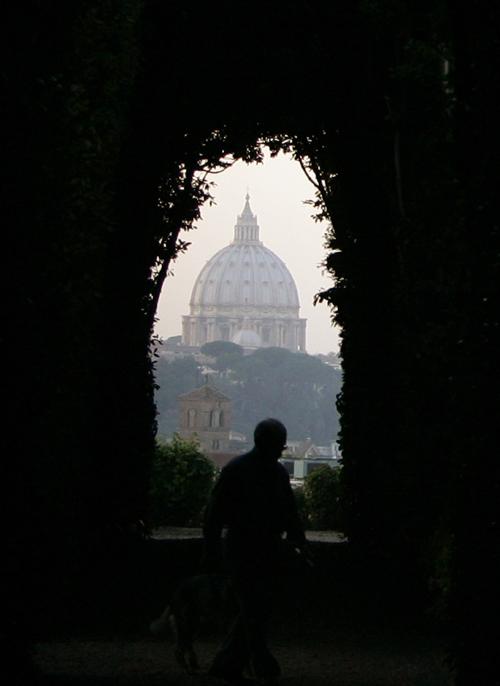Vatican publishes documents on Knights Templar trial in limited edition with $8,377 price tag
Oct 15, 2007
VATICAN CITY – It’s not the Holy Grail, but for fans of “The Da Vinci Code” and its tantalizing story line about the Knights Templar, it could be the next best thing.
Ignored for centuries, documents about the heresy trial of the ancient Christian order discovered in the Vatican’s secret archives are being published in a limited edition – with an $8,377 price tag.
They include a 14th-century parchment showing that Pope Clement V initially absolved the Templar leaders of heresy, though he did find them guilty of immorality and planned to reform the order, according to the Vatican archives Web site.
But pressured by King Philip IV of France, Clement later reversed his decision and suppressed the order in 1312.
Only 799 copies of the 300-page volume, “Processus Contra Templarios,” – Latin for “Trial against the Templars” – are for sale, said Scrinium publishing house, which prints documents from the Vatican’s secret archives. Each will cost $8,377, the publisher said Friday.
Get The Daily Illini in your inbox!
An 800th copy will go to Pope Benedict XVI, said Barbara Frale, the researcher who found the long-overlooked parchment tucked away in the archives in 2001.
The Knights Templar, which ultimately disappeared because of the heresy scandal, recently captivated the imagination of readers of the best-seller “The Da Vinci Code,” which linked the order to the legend of the Holy Grail.
The new Vatican work reproduces the entire documentation of the papal hearings convened after Philip IV of France arrested and tortured Templar leaders in 1307 on charges of heresy and immorality.
The military order of the Poor Knights of Christ and of the Temple of Solomon was founded in 1118 in Jerusalem to protect pilgrims in the Holy Land after the First Crusade.
As their military might increased, the Templars also grew in wealth, acquiring property throughout Europe and running a primitive banking system. After they left the Middle East with the collapse of the Crusader kingdoms, their power and secretive ways aroused the fear of European rulers and sparked accusations of corruption and blasphemy.
Historians believe Philip owed debts to the Templars and used the accusations to arrest their leaders and extract, under torture, confessions of heresy in order to seize the order’s riches.
The publishing house said the new book includes the “Parchment of Chinon,” a 1308 decision by Clement to save the Templars and their order.
Frale said the three-foot-wide document probably had been ignored because a catalog entry in 1628 was “too vague.”
“Unfortunately, there was an archiving error, an error in how the document was described,” she told The Associated Press in a telephone interview from her home in Viterbo, north of Rome. “More than an error, it was a little sketchy.”
The parchment, in remarkably good condition considering its 700 years, apparently had last been consulted at the start of the 20th century, Frale said, surmising that its significance must not have been realized then.
Frale said she was intrigued by the 1628 entry because, while it apparently referred to some minor matter, it noted that three top cardinals, including Pope Clement’s right-hand man, Berenger Fredol, had made a long journey to interrogate someone.
“Going on with my research, it turned out that in reality it was an inquest of very great importance,” she said.
Fredol “had gone to question the Great Master and other heads of the Templars who had been segregated, practically kidnapped, by the king of France and shut up in secret in his castle in Chinon on the Loire.”
Jacques de Molay, Grand Master of the Templars, was burned at the stake in 1314 along with his aides.
The surviving monks fled. Some were absorbed by other orders, and over the centuries, various groups have claimed to be descended from the Templars.
As for Clement, he “was a hostage in French territory” on the eve of what historians would call the Avignon period of popes, Frale said.
She said the parchment reveals the cardinals reached the conclusion the Templars were guilty of abuses but not “a real and true heresy.”
“There were a lot of faults in the order – abuses, violence … a lot of sins, but not heresy,” she said.
These included forcing new recruits to “reject Christ in words and spit on the cross,” in imitation of the violence suffered by knights when captured by Muslims, Frale said. New members were kicked and punched if they refused to undergo this kind of hazing, she added.
Philip had “confiscated all the wealth of the order, which he used to pay his debts,” said Frale, who has written three books about the Templars. “Had the (order) survived, it’s clear that Philip … would have had to give back all” the wealth.
“But the king of France had already spent it,” she said.






